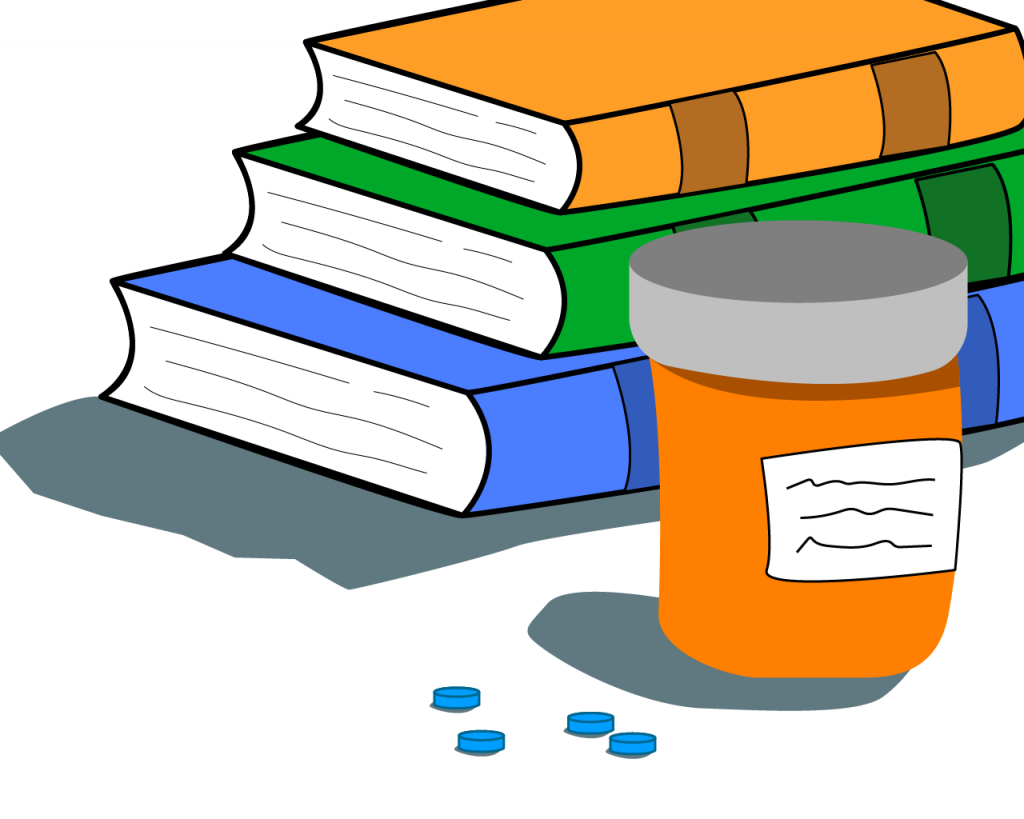As the semester comes to a close, the Binghamton Student Managed Adderall Research Team (B-SMART) held a seminar to inform Binghamton University students about the reality of taking “study drugs.”
B-SMART is a student-run research and educational group first founded in the fall of 2018 by Lina Begdache, assistant professor of health and wellness studies.
According to the B-SMART’s Adderall and Nutrition website, the research group aims to understand the causes and consequences of the study drugs epidemic by studying its correlation with factors such diet, mental health and academic performance, all while promoting awareness to college students on the misuse of illicit drugs.
B-SMART student researcher Sana Malik, a senior double-majoring in biology and philosophy, politics and law, said she thought it was essential to discuss the team’s mission to educate students on the illicit usage of Adderall.
“Especially since finals are coming up, it’s important for students to be aware that using study drugs like Adderall can have long-term adverse side effects,” Malik wrote in an email. “We understand that this can be an overwhelming time of the year for many, so we want to provide information that can help students make healthy and informed decisions.”
Adderall is a central nervous system stimulant, typically prescribed for those who are diagnosed with medical conditions such as attention-deficit/hyperactivity disorder (ADHD) or narcolepsy, a disorder that causes excessive daytime drowsiness and sudden sleep. However, the Schedule II drug — defined as a drug with a high potential of abuse — is often abused by students and young professionals to enhance their alertness, productivity and overall academic performance.
Begdache remarked that because Adderall is a prescription drug, many students believe that it is safe to use and are unaware of its potential for addiction and neurological modifications.
“There is limited to no effort allocated to promoting awareness on the illicit use of Adderall on college campuses,” Begdache said. “The concern is that Adderall is an amphetamine with a potential for addiction and abuse, like street drugs. These drugs may cause dependence and addiction, because they modify brain chemistry.”
Since 2018, the B-SMART cohorts have been able to hold semiannual seminars to discuss their research on illicit Adderall usage. During the most recent event, students were given the opportunity to ask questions to various panelists from the University’s health and wellness studies and psychology departments.
Jade Lee, a junior majoring in biochemistry, heard about the event from her professor in a health and wellness studies course. They said listening to the panelists and student researchers both cleared up their questions regarding Adderall usage and solidified their perception of the drug.
“I felt quite informed after [the event], because I wasn’t completely aware of the negative effects of misusing Adderall and was extremely surprised when the panelists and researchers said that Adderall was in the same category as meth,” Lee wrote in an email. “I didn’t realize how addictive it could be, and even though I never really considered taking it, this just solidified for me to never do so.”
Apart from holding educational seminars every semester, Begdache says the B-SMART researchers have continued to assess their findings surrounding Adderall usage through a series of questions from a Google Form. These questions are not only a way to collect data to document correlations between the illicit ADHD medication to components such as diet, caffeine and exercise, but this first phase in the process also allows the group to communicate with wider student audiences. These responses will ultimately help shape future B-SMART studies on illicit Adderall usage.
“The questionnaire used included several questions that helped understand how students perceive the non-medicinal use of Adderall, potential symptoms developed, academic performance [and] current and cumulative GPA,” Begdache said. “We learned a lot from our first phase, which helped shape our research questions for the subsequent phases.”
Moving forward from the event, B-SMART student researcher Jared Zubin, a senior majoring in integrative neuroscience, wrote in an email that he hopes students will gain new understanding from semester’s seminar and discussed the team’s future goals of continuing to raise student awareness on the repercussions surrounding Adderall’s use as a study drug.
“There seems to be a lot of misinformation surrounding Adderall, and my main hope that students take away from coming to this B-SMART event is to understand the true consequences of illicit ADHD medication,” Zubin said. “The B-SMART team has a few different plans going forward, with our priority being to present our findings to younger students attending local high schools to mitigate the spread of false information about using such drugs illicitly and potentially have these habits be broken before the students reach the college level.”



